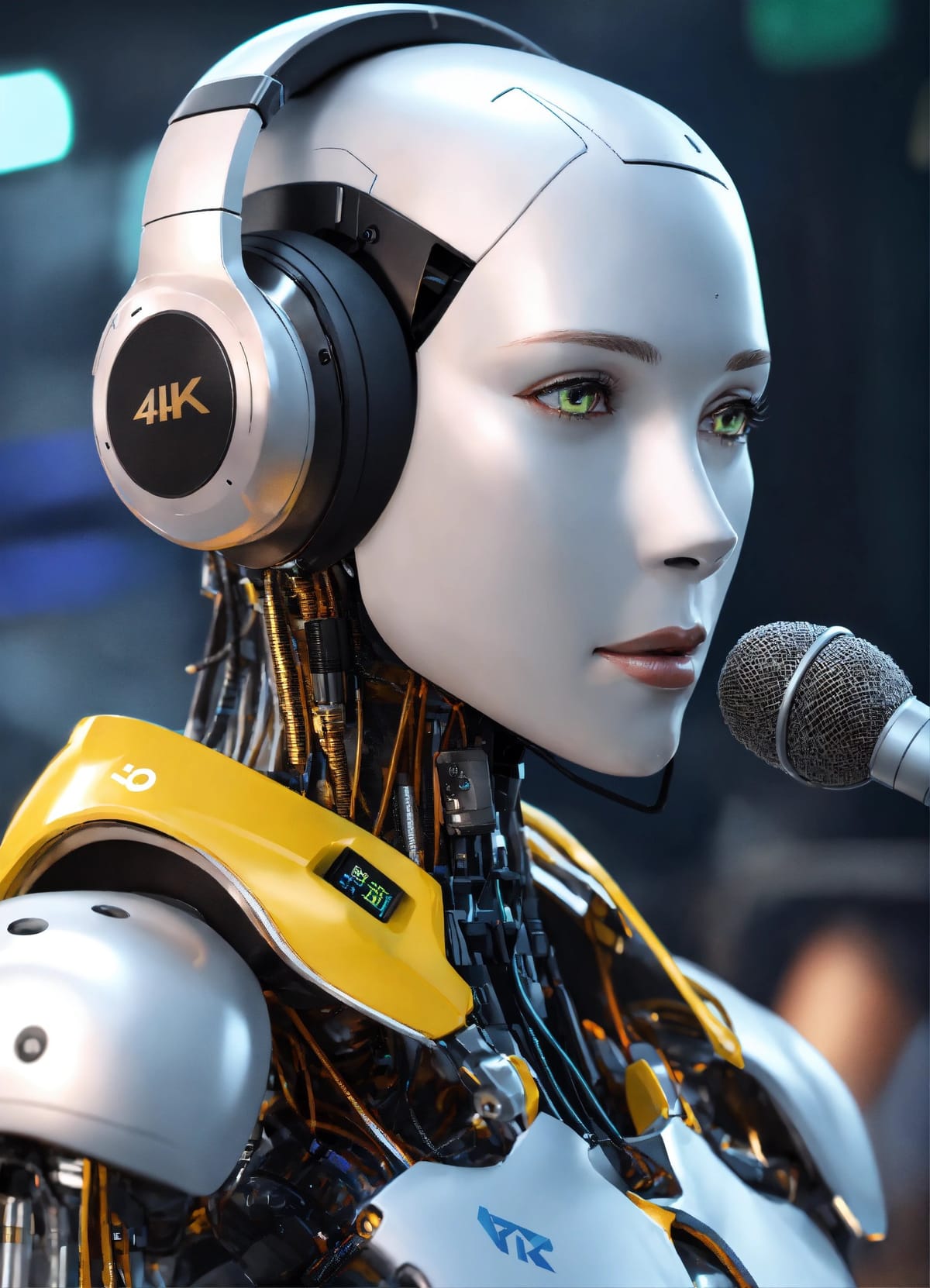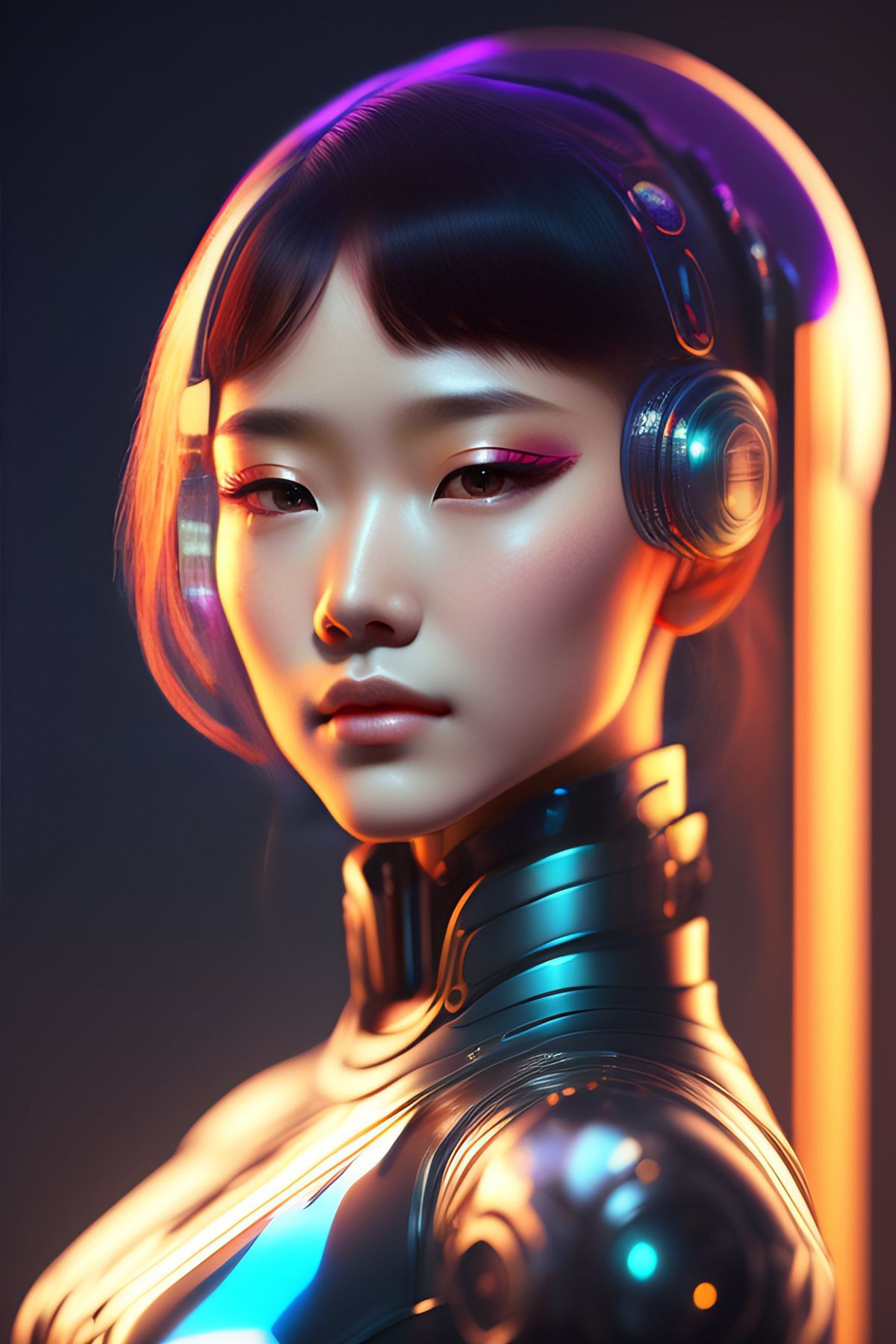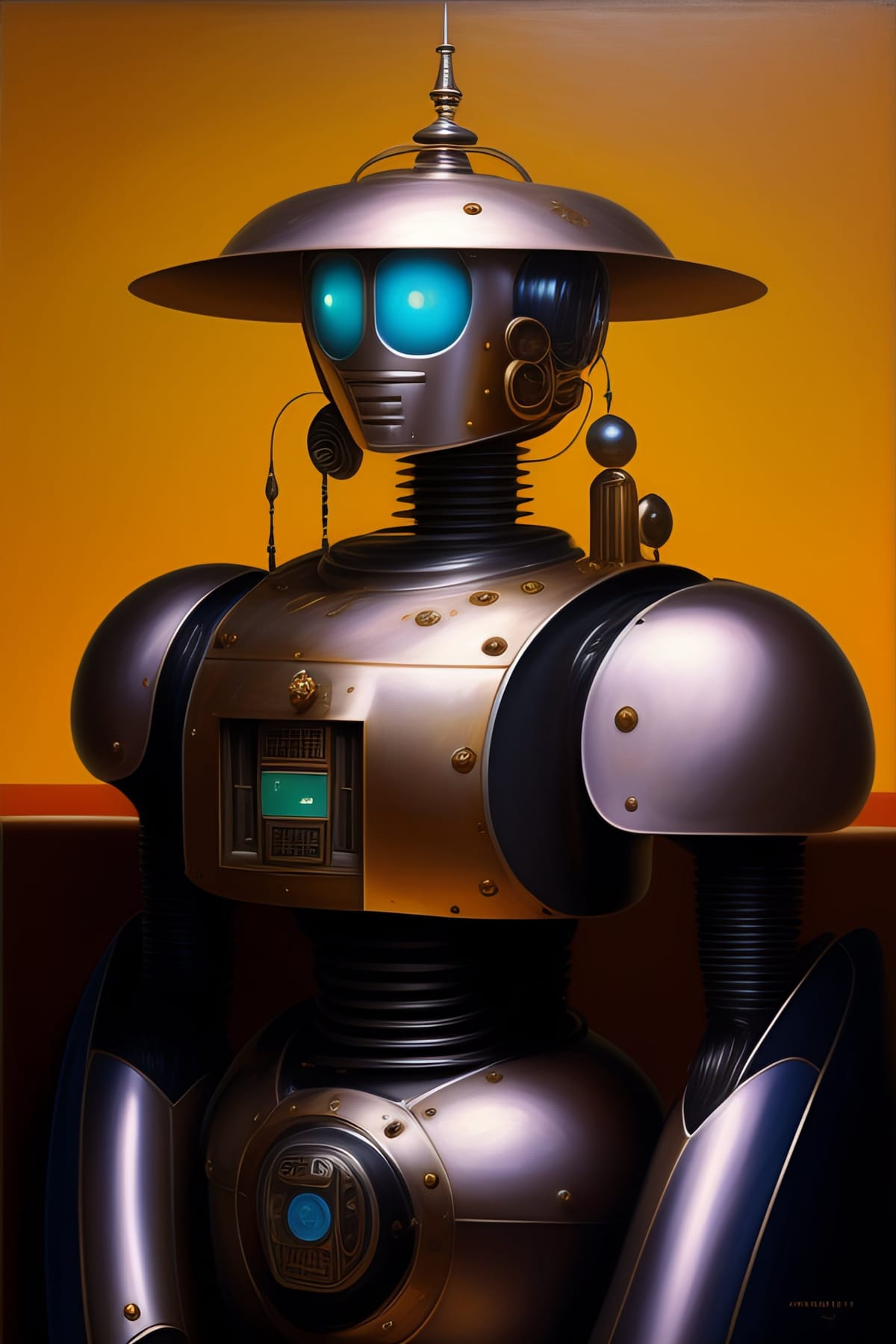Sora pushes Hollywood Mogul to put $800 mn Studio Expansion on hold: Can AI end Filmmaking Forever?
Sora's bold move comes in light of the growing influence of artificial intelligence (AI) in filmmaking, raising questions about its economic impact, ethical concerns, and environmental implications.





Introduction:
In the fast-paced world of Hollywood, where creativity meets commerce, the recent decision by Sora, a prominent filmmaker, to put a massive studio expansion on hold has sparked a heated debate about the future of cinema production. Sora's bold move comes in light of the growing influence of artificial intelligence (AI) in filmmaking, raising questions about its economic impact, ethical concerns, and environmental implications.
As AI continues to revolutionize various industries, its presence in filmmaking has been met with both excitement and apprehension. On one hand, AI has the potential to streamline production processes and reduce costs significantly. However, concerns about job displacement and loss of creative autonomy have also emerged.
Moreover, as we reimagine the future of cinema production in an increasingly automated industry, it is crucial to consider the role of creativity. Can AI truly replicate human ingenuity and storytelling abilities? Or will it simply become a tool for amplifying human creativity?
In this essay, we will explore these pressing issues surrounding AI in filmmaking and delve into the economic impact it may have on the industry. We will also examine the ethical dilemmas that arise from using AI in creative endeavours and discuss how we can navigate these challenges while preserving artistic integrity. Join us as we embark on a journey to uncover the potential – and pitfalls – of integrating AI into Hollywood's glittering landscape.
Economic Impact Of AI in Filmmaking:
The economic impact of AI in filmmaking is undeniable, as it has the potential to revolutionize the industry in ways we have never seen before. By utilizing AI technology, filmmakers can streamline the production process, reduce costs, and ultimately increase profitability. With the ability to generate realistic special effects, create lifelike digital characters, and even predict audience preferences, AI has the power to transform how movies are made and consumed.
One of the key benefits of incorporating AI into filmmaking is its ability to save time and money. Traditionally, creating visual effects or editing scenes could take weeks or even months to complete. However, with AI-powered tools like deep learning algorithms and neural networks, these tasks can now be completed in a fraction of the time. This not only speeds up the production process but also significantly reduces production costs.
Furthermore, AI can help filmmakers better understand their audience's preferences by analyzing vast amounts of data on viewing habits and trends. By leveraging this information, filmmakers can tailor their content to better resonate with viewers and increase box office success. This targeted approach not only benefits studios financially but also enhances the overall movie-watching experience for audiences.
Additionally, AI has opened up new possibilities for storytelling through techniques like machine learning-generated scripts or interactive narratives. These innovative approaches have the potential to captivate audiences in new ways and attract a wider range of viewers.
Overall, the economic impact of AI in filmmaking is poised to be transformative for the industry. By embracing this technology, filmmakers have an opportunity to push boundaries creatively while also improving efficiency and profitability. As Hollywood moguls like Sora grapple with these advancements, it's clear that AI has the potential to revolutionize filmmaking forever – for both creators and audiences alike.
Ethical Concerns Surrounding Artificial Intelligence:
One of the most pressing issues surrounding the use of artificial intelligence in filmmaking is the ethical concerns that arise from its implementation. As AI technology becomes more advanced and integrated into various industries, questions about its impact on society, particularly in creative fields like filmmaking, are becoming increasingly important to address. Critics argue that AI has the potential to replace human creativity and skill, leading to a homogenization of content and a loss of diversity in storytelling. This raises questions about the role of AI in shaping cultural narratives and the implications for representation and inclusivity in media.
Furthermore, there are concerns about the ethical implications of using AI to make decisions traditionally reserved for humans. For example, algorithms used in casting decisions could perpetuate biases and stereotypes, leading to discriminatory outcomes. Additionally, the use of AI in script development could raise questions about intellectual property rights and ownership of creative work. As AI becomes more prevalent in filmmaking processes, it is crucial to consider how these technologies are programmed and regulated to ensure that they align with ethical standards and values.
Moreover, there are broader societal implications of relying on AI for film production. The potential displacement of human workers by automation raises concerns about job security and economic inequality. If AI becomes capable of handling all aspects of filmmaking, from scriptwriting to editing, what will happen to the thousands of individuals employed in these roles? How will society adapt to a landscape where human creativity is no longer valued as highly as technological efficiency?
While the use of artificial intelligence in filmmaking has the potential to revolutionize industry practices and enhance creative possibilities, it also brings with it a host of ethical concerns that must be carefully considered. By addressing these issues proactively and implementing safeguards to protect against negative consequences, we can ensure that AI enhances rather than detracts from the artistry and diversity present in contemporary cinema.
Reimagining The Future Of Cinema Production:
As we look towards the future of cinema production, it is clear that the landscape is evolving at a rapid pace. With advancements in technology and the rise of artificial intelligence, the possibilities for reimagining how films are made are endless. In light of recent events, such as Sora's decision to put a massive studio expansion on hold, there is a growing debate about whether AI could potentially end traditional filmmaking forever.
Imagine a world where AI algorithms analyze audience preferences and trends to create personalized content tailored to individual viewers. This level of customization could revolutionize the way films are produced and consumed, leading to a more immersive and engaging experience for audiences worldwide. Additionally, AI-powered tools can streamline the production process by automating tasks such as scriptwriting, casting decisions, and post-production editing. This not only saves time and resources but also opens up new creative possibilities for filmmakers.
Furthermore, AI can help studios make more informed decisions about which projects to greenlight based on data-driven insights into market demand and audience reception. By harnessing the power of machine learning algorithms, Hollywood moguls can minimize financial risks while maximizing box office success. This shift towards data-driven decision-making could lead to a more sustainable and profitable industry in the long run.
While some may fear that AI will replace human creativity in filmmaking, it is important to remember that technology is merely a tool that enhances our capabilities rather than replacing them entirely. By embracing AI as a partner in the creative process, filmmakers can push boundaries and explore new storytelling techniques that were previously unimaginable. The future of cinema production is bright with endless possibilities waiting to be explored – all thanks to the transformative power of artificial intelligence.
Environmental Implications Of Studio Expansions:
As we consider the environmental implications of studio expansions, it becomes clear that the potential impact on our planet cannot be ignored. The construction of a massive $800 million studio expansion would undoubtedly lead to increased carbon emissions, waste production, and disruption of local ecosystems. The sheer scale of such a project would require vast amounts of resources, from raw materials for construction to energy for operation. This could result in a significant increase in greenhouse gas emissions, further exacerbating the already pressing issue of climate change.
Furthermore, the expansion of film studios often involves clearing large areas of land for development. This can lead to deforestation and destruction of natural habitats, putting wildlife at risk and contributing to biodiversity loss. In addition, the influx of people and equipment associated with studio expansions can put strain on local infrastructure and resources, leading to increased pollution and waste generation.
In light of these environmental concerns, it is crucial that we carefully consider the long-term impacts of studio expansions before moving forward with such projects. While advancements in technology have enabled us to create more realistic and immersive films than ever before, we must also consider the cost to our planet. As stewards of this Earth, it is our responsibility to prioritize sustainability and conservation in all aspects of our lives – including the entertainment industry.
By putting a hold on the $800 million studio expansion and exploring alternative options such as AI-powered filmmaking, we have an opportunity to not only revolutionize the way films are made but also reduce our environmental footprint. With AI technology becoming increasingly sophisticated and capable of replicating human creativity, there is great potential for a more sustainable future for filmmaking. Let us embrace this opportunity to protect our planet while still pushing boundaries in the world of entertainment.
Role Of Creativity In An Automated Industry:
In an increasingly automated industry, the role of creativity becomes more crucial than ever. While AI technology has undoubtedly revolutionized many aspects of filmmaking, it cannot replace the unique spark of creativity that is essential to creating truly memorable and impactful films. Sora's decision to push a Hollywood mogul to put a massive studio expansion on hold highlights the importance of maintaining a balance between automation and human ingenuity in the film industry.
Creativity is what sets great filmmakers apart from the rest. It is the ability to think outside the box, to come up with fresh and innovative ideas that captivate audiences and leave a lasting impression. While AI can analyze data and predict trends, it lacks the emotional depth and intuition that human beings possess. This emotional intelligence allows filmmakers to tap into universal truths and connect with viewers on a deeper level.
Moreover, creativity is essential for problem-solving in filmmaking. When faced with challenges or obstacles, filmmakers rely on their creative instincts to find solutions that are both effective and original. AI may be able to streamline certain processes, but it cannot replicate the spontaneous brilliance that comes from human imagination.
Furthermore, creativity plays a vital role in pushing boundaries and exploring new possibilities in filmmaking. It is what drives innovation and pushes the industry forward. Without creative visionaries at the helm, films would become formulaic and predictable, lacking the excitement and intrigue that make them so compelling.
While AI technology has its place in modern filmmaking, it should not overshadow or diminish the importance of creativity in shaping cinematic masterpieces. Sora's bold stance against mindless expansion serves as a reminder that human creativity is irreplaceable in an automated industry. By embracing both technological advancements and artistic inspiration, filmmakers can continue to create groundbreaking works that resonate with audiences around the world.
Conclusion:
In conclusion, the recent decision by Sora to push a Hollywood mogul to put an $800 million studio expansion on hold has sparked a crucial conversation about the role of artificial intelligence in filmmaking.
The economic impact of AI in filmmaking is undeniable, with the potential to revolutionize production processes and reduce costs. However, ethical concerns surrounding AI must also be carefully considered, as automation raises questions about job displacement and creative control.
As we reimagine the future of cinema production, it is important to strike a balance between harnessing the power of AI for efficiency and preserving the unique human touch that drives creativity in the industry. While AI can streamline workflows and enhance visual effects, it is essential to remember that storytelling is ultimately a human endeavour.
Furthermore, as we contemplate studio expansions and technological advancements, we must not overlook the environmental implications of our actions. Sustainable practices should be at the forefront of any industry developments to minimize carbon footprints and protect our planet for future generations.
Ultimately, while AI may play an increasingly prominent role in filmmaking, creativity remains at the heart of what makes cinema so impactful and enduring. By embracing innovation while upholding ethical standards and environmental responsibility, we can shape a bright future for the industry that benefits both audiences and creators alike.
Connect with Digital Marketing Legend "Srinidhi Ranganathan" on LinkedIn:

Check out these amazing content from Bookspotz and New Bots:



















